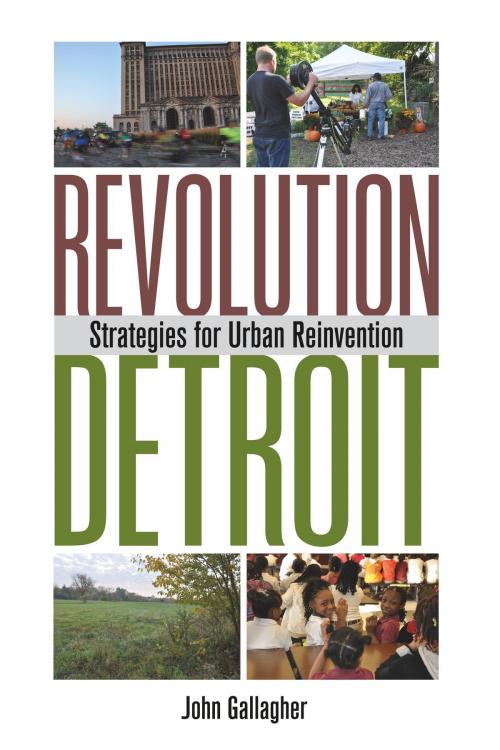Revolution Detroit
Strategies for Urban Reinvention
Business & Finance, Economics, Urban & Regional, Nonfiction, Art & Architecture, Architecture, Planning, Social & Cultural Studies, Political Science, Government, Local Government| Author: | John Gallagher | ISBN: | 9780814338575 |
| Publisher: | Wayne State University Press | Publication: | March 15, 2013 |
| Imprint: | Wayne State University Press | Language: | English |
| Author: | John Gallagher |
| ISBN: | 9780814338575 |
| Publisher: | Wayne State University Press |
| Publication: | March 15, 2013 |
| Imprint: | Wayne State University Press |
| Language: | English |
After decades of suburban sprawl, job loss, and lack of regional government, Detroit has become a symbol of post-industrial distress and also one of the most complex urban environments in the world. In Revolution Detroit: Strategies for Urban Reinvention, John Gallagher argues that Detroit's experience can offer valuable lessons to other cities that are, or will soon be, dealing with the same broken municipal model. A follow-up to his award-winning 2010 work, Reimagining Detroit, this volume looks at Detroit's successes and failures in confronting its considerable challenges. It also looks at other ideas for reinvention drawn from the recent history of other cities, including Cleveland, Flint, Richmond, Philadelphia, and Youngstown, as well as overseas cities, including Manchester and Leipzig. This book surveys four key areas: governance, education and crime, economic models, and the repurposing of vacant urban land. Among the topics Gallagher covers are effective new urban governance models developed in Cleveland and Detroit; new education models highlighting low-income-but-high-achievement schools and districts; creative new entrepreneurial business models emerging in Detroit and other post-industrial cities; and examples of successful repurposing of vacant urban land through urban agriculture, restoration of natural landscapes, and the use of art in public places. He concludes with a cautious yet hopeful message that Detroit may prove to be the world's most important venue for successful urban experimentation and that the reinvention portrayed in the book can be repeated in many cities. Gallagher's extensive traveling and research, along with his long career covering urban redevelopment for the Detroit Free Press, has given him an unmatched perspective on Detroit's story. Readers interested in urban studies and recent Detroit history will appreciate this thoughtful assessment of the best practices and obvious errors when it comes to reinventing our cities.
After decades of suburban sprawl, job loss, and lack of regional government, Detroit has become a symbol of post-industrial distress and also one of the most complex urban environments in the world. In Revolution Detroit: Strategies for Urban Reinvention, John Gallagher argues that Detroit's experience can offer valuable lessons to other cities that are, or will soon be, dealing with the same broken municipal model. A follow-up to his award-winning 2010 work, Reimagining Detroit, this volume looks at Detroit's successes and failures in confronting its considerable challenges. It also looks at other ideas for reinvention drawn from the recent history of other cities, including Cleveland, Flint, Richmond, Philadelphia, and Youngstown, as well as overseas cities, including Manchester and Leipzig. This book surveys four key areas: governance, education and crime, economic models, and the repurposing of vacant urban land. Among the topics Gallagher covers are effective new urban governance models developed in Cleveland and Detroit; new education models highlighting low-income-but-high-achievement schools and districts; creative new entrepreneurial business models emerging in Detroit and other post-industrial cities; and examples of successful repurposing of vacant urban land through urban agriculture, restoration of natural landscapes, and the use of art in public places. He concludes with a cautious yet hopeful message that Detroit may prove to be the world's most important venue for successful urban experimentation and that the reinvention portrayed in the book can be repeated in many cities. Gallagher's extensive traveling and research, along with his long career covering urban redevelopment for the Detroit Free Press, has given him an unmatched perspective on Detroit's story. Readers interested in urban studies and recent Detroit history will appreciate this thoughtful assessment of the best practices and obvious errors when it comes to reinventing our cities.















